Basic or Clinical/Translational Faculty
Basic Research Faculty and Labs

Bohao Chen
Associate Professor
- Dr. Chen’s research interests are focused on exploring the molecular mechanisms of airway constrictor hyperresponsiveness in asthma and searching for novel therapeutic approaches to this disease, including: 1). Determination of mechanisms that Gata5 deficiency causes airway constrictor hyperresponsiveness in mice; 2). Evaluation of the role of GATA5 in the regulation of Apo E-LDLR pathway in airway remodeling and constrictor hyperresponsiveness; 3). identification of the role of HLA-G in the activation of LILRB – SHP2 signaling pathway in airway inflammation and asthma; 4). Exploration of compounds that regulate contractile protein accumulation and modulate myofilament polymerization and/or reduce force generation in airway smooth muscle.

Nickolai Dulin
Associate Professor
- Dr. Nickolai Dulin studies the signaling mechanisms of myofibroblast differentiation as related to the pathogenesis of pulmonary fibrosis. This includes the signaling induced by TGF-beta and by G protein coupled receptors, control of cell signaling by actin and microtubule sytoskeleton, activation of mechanosensitive transcription factors and identification of their target genes, and control of these processes through protein phosphorylation. His studies using cultured human lung fibroblasts and animal models of pulmonary fibrosis aim to identify new signaling molecules that could be targeted for potential treatment of this disease.

Yun Fang
Associate Professor
- Dr. Fang laboratory has broad interests and deep expertise in vascular biology, non-coding genome, and nano-medicine. His lab investigates the pathophysiological mechanisms of vascular diseases, particularly the modulation of vascular health by non-coding genome in the context of cardiovascular complication (atherosclerosis) and pulmonary disease (acute lung injury).Their major research goals are 1) to elucidate novel non-coding genome-mediated disease mechanisms and 2) to develop new nanomedicine-based diagnostic and therapeutic applications. The Fang lab applies multi-disciplinary approaches including high-throughput sequencing, bioinformatics, material sciences, human genetics, bioengineering tools, and cell/molecular biology techniques as well as experimental in vivo and in vitro models. More information about the Fang laboratory may be found below.
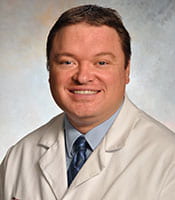
Rob Guzy
Assistant Professor
- Dr. Guzy’s research is focused on the mechanisms involved in recovery from lung injury, and how aberrant recovery from injury leads to fibroblast activation and the development of pulmonary fibrosis. The goal of his research is to understand the mechanisms regulating how lung epithelium, endothelium, and fibroblasts interact following injury to promote 1) repair following lung injury and ARDS and 2) pathological fibroblast proliferation resulting in a variety of lung diseases, including pulmonary fibrosis. His laboratory is interested in the cellular mechanisms by which growth Fibroblast Growth Factors (FGFs) and related pathways such as bone morphogenic protein (BMP) signaling are involved in lung injury and pulmonary fibrosis. Dr. Guzy studies the mechanism by which FGFs act as reparative agents following injury, and whether they can be utilized as therapeutic agents in lung injury and ARDS. He is also interested in how FGFs and BMP signaling interact with TGF-beta and other pro-fibrotic growth factors in fibroblasts in the setting of pulmonary fibrosis. Current work in his laboratory uses a combination of transgenic mouse models, animal models of lung injury and pulmonary fibrosis, and human translational studies.
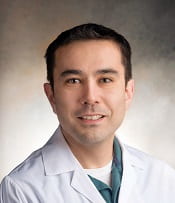
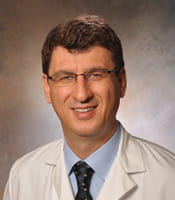
Gokhan Mutlu
Professor
- Dr. Mutlu’s research is focused on the mechanisms of that underlie the development and resolution of acute lung injury/ARDS and the mechanisms by which particulate matter air pollution causes acute ischemic cardiovascular events. He has made significant contributions to our understanding of the role of alveolar epithelial beta-2 adrenergic receptors in ARDS, including identification of the mechanisms that aid in clearance of excess fluid after lung injury. Currently, his laboratory focuses on the molecular mechanisms by which alveolar macrophage beta-2 adrenergic receptors contribute to the release of IL-6 during lung injury/inflammation.

Nathan Schoettler
Assistant Professor
Dr. Schoettler’s research focuses on the effects of genetic variation on immune cell responses in complex genetic diseases, chiefly asthma. His laboratory leverages large-scale databases to identify asthma sub-phenotypes and associated genetic variants, and integrates these discoveries with functional and cellular studies of lung immune cells with a goal of discovering molecular mechanisms that contribute to asthma. He has a particular interest in the adaptive immune response (T and B cells) in the lung and tissue resident memory cells that are abundant in lung tissue but do not circulate in the blood.
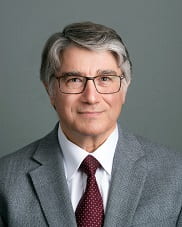
Julian Solway
Professor
- Dr. Solway’s research programs primarily address asthma. He has extensive experience studying airway smooth muscle (ASM) function and dysfunction in asthma, having studied smooth muscle specific gene transcription, protein accumulation, and hypertrophy, and signaling mechanisms that regulate these; ASM contraction and its reversal, and the mechanisms that regulate these; and ASM mediated-airway narrowing, airway constrictor responsiveness, and lung function in both animal models and humans. Additional studies address asthma genetics and therapeutics in mechanistic and therapeutic clinical studies and preclinical development of novel asthma treatments. Recently, he has focused on the inhibition of pulmonary fibrosis and on the inhibition of breast cancer metastasis using novel small molecules discovered in our asthma studies.

Steven White
Professor
- Dr. White’s interests include the repair and survival of airway epithelium in asthma and airway inflammation. His laboratory studies programmed cell death, cell-matrix interactions in cell migration, and the expression of adhesion receptors. Recent areas of emphasis include the role of the immune molecule HLA-G in asthma and lung allograft survival in transplantation.
Clinical and Translational Research Faculty and Labs
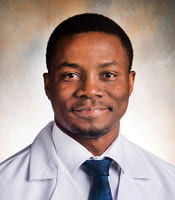
Ayodeji Adegunsoye
Assistant Professor
- Dr. Adegunsoye’s research interests focus on clinical prediction models and improving outcomes in patients with interstitial lung disease. His research is aimed at finding effective clinical solutions that improve survival and prevent lung function decline using epidemiologic and translational approaches. Dr. Adegunsoye is interested in risk prediction using advanced statistical techniques to improve the delivery of high-quality care to patients with pulmonary diseases. His research has led to the identification of improved practical strategies to optimizing pharmacotherapy in patients with fibrotic lung disease. In addition, he educates and mentors residents and trainees in pulmonary and critical care medicine.
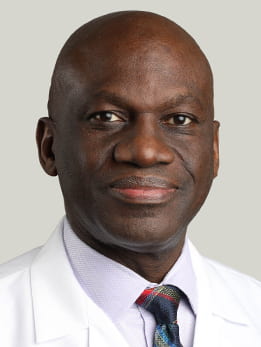
Sola Olopade
Professor
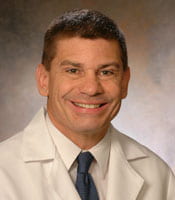
JP Kress
Professor
- Dr. Kress is studying strategies for sedation of critically ill patients requiring mechanical ventilation. In addition to this, he is leading clinical research projects in assessing pulmonary edema in critically ill patients with the use of serum beta natiuretic peptide, medical education in the ICU in the context of new ACGME resident work guidelines, implementation of protocols in the ICU and the utility of the physical examination compared to invasive monitoring in critically ill patients.

Cathryn Lee
Instructor
Dr. Lee’s research focuses on the relationship between inhalational exposures, both occupational and domestic, and clinical outcomes in patients with interstitial lung disease (ILD). Her current work describes the relationship between exposures and survival across all ILDs regardless of underlying subtype. Her overall goal is to better identify these exposures to both improve outcomes in patients with ILD as well as prevent ILD in those who are at high risk.

William Parker
Assistant Professor
- Dr. Parker’s research focuses on deceased donor organ allocation for transplantation. His current work includes determining the impact of allocation rules and geographic competition on patient outcomes and the treatment practices of transplant centers. Dr. Parker’s overall goal is to apply advanced data science methods such as deep learning and simulation modeling to organ allocation, designing systems that efficiently and fairly allocate these scarce health care resources to the patients most in need.
Pubmed publications | DOM website | Detailed profile | Contact
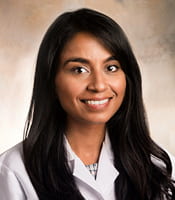
Bhakti Patel
Assistant Professor
- Dr. Patel’s research focuses on identifying patient care interventions that prevent long-term complications in mechanically ventilated patients to truly alter the legacy of survivorship. Her overall hypothesis is that many ICU complications are perpetuated by current standard care practices and that choosing mobility over immobility, mental animation over sedation, and spontaneous versus controlled respiration will improve outcomes. Her research career is built on this “less is more” approach to inform investigational trials and in parallel apply translational science to understand the biological mechanisms behind these interventions to broaden their applications to all patients. This approach has inspired her investigations of helmet ventilation in ARDS and early mobilization in mechanically ventilated patients.
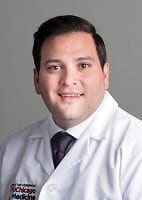
Juan Rojas
Instructor
- Dr. Rojas currently is a Coggeshall Instructor of Medicine in the Section of Pulmonary and Critical Care. His current research is aimed at understanding and preventing ICU readmissions. Specifically, he hopes to apply novel machine learning methods to electronic health record data to identify patients at highest risk of preventable ICU readmissions. This unique prediction tool could be used to develop specific transitions of care pathways to improve outcomes for patients recovering from critical illness.

Mary Strek
Professor
- Dr. Strek conducts clinical research studies to develop new medications for the treatment of asthma, COPD, bronchiectasis and pulmonary fibrosis. The goal of these studies is to provide improved treatment for patients with Pulmonary Diseases; some studies also provide insight into the pathophysiology of the disease process itself.
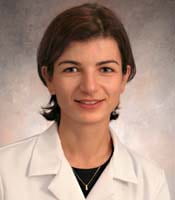
Esra Tasali
Associate Professor
- Dr.Tasali is interested in studying the links between sleep and metabolic, endocrine and cardiovascular functions. Dr.Tasali’s current research focuses on the role of sleep disturbances in the development of metabolic and endocrine abnormalities including type 2 diabetes, obesity and metabolic syndrome.

Krysta Wolfe
Assistant Professor
- Dr. Wolfe’s academic interest is in critical care outcomes. Her research specifically focuses on the mechanism and effects of various medications used to treat shock, as well as improving the identification and characterization of septic shock.
